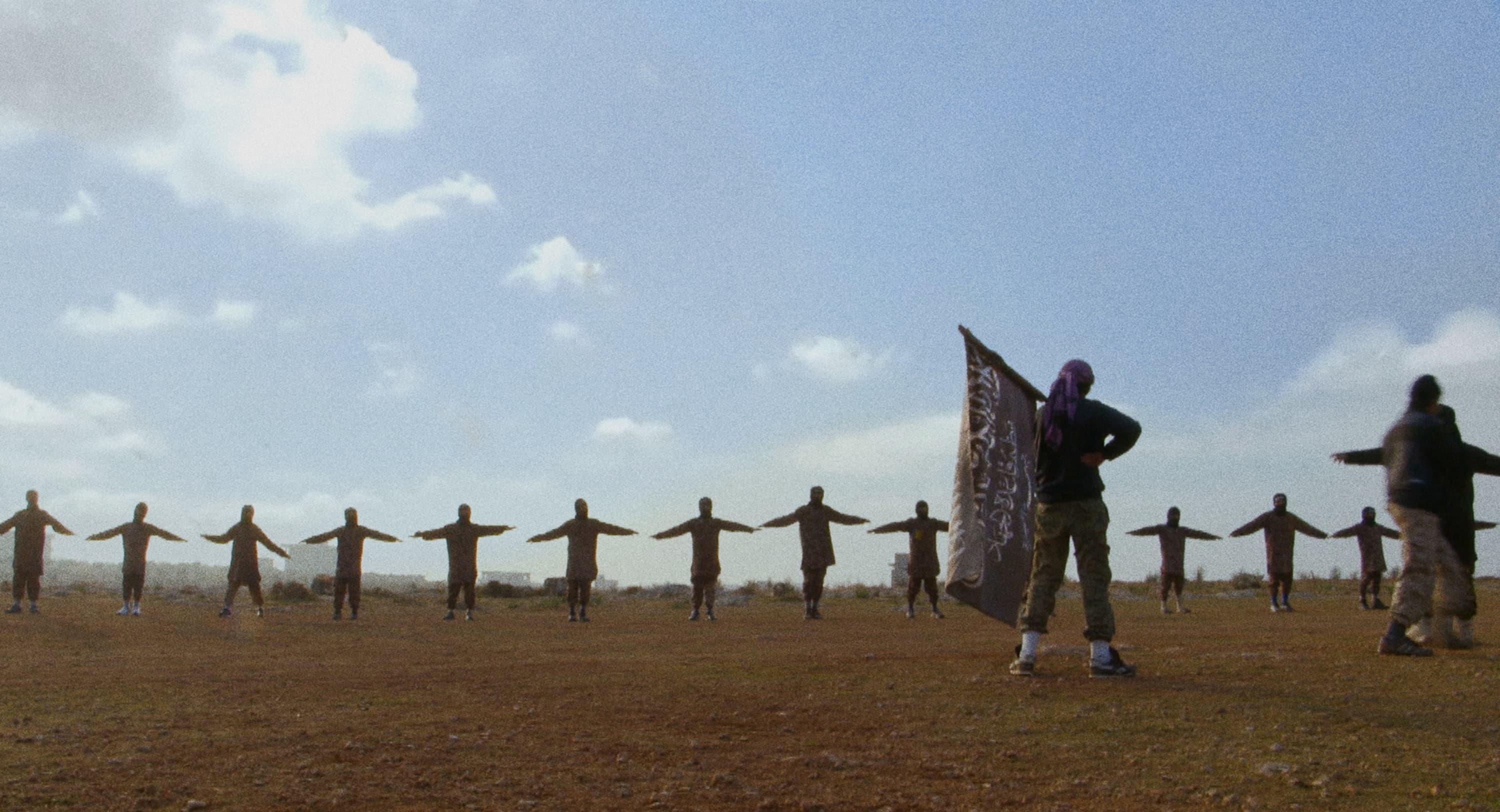
Raising Jihadists: Of Fathers and Sons
Syrian director Talal Derki, whose Return to Homs opened IDFA in 2013, is back at the festival with a second work exploring his country’s self-destructive civil war, this time through an intimate portrait of an Al-Nusra Front fighter and his sons. Now living in exile in Germany, Derki took his life in his hands and returned undercover to Syria in 2014, to embed with protagonist radical Islamist fighter Abu Osama and his family in the Al-Nusra Front heartlands of Idlib, in northwestern Syria.
Inspiration for Of Fathers and Sons came out of the final shooting period of Return to Homs, explains Derki, when he witnessed its pro-democracy fighter protagonist Abdul Baset al-Sarout and his comrades embrace jihadi beliefs, influenced by the teachings of radical preachers from outside Syria. “I saw a change in Baset and some of his group. They were really influenced by these sheikhs from outside the country, with their doomsday, Armageddon ideologies,” he recalls. “It was a shocking and complicated time for me, as I witnessed the fight for democracy and freedom cross over into a religious, ideological battle.”
The filmmaker decided to look at the phenomenon through the vehicle of a radical father and his sons, joining the Abu Osama household under the guise of a recent Islamist convert who wanted to make a film glorifying the jihadist cause. “I was praying with them, I shaved my moustache. I changed how I dressed. I had to adopt the same attitude and look ... I would sometimes go days without doing anything, going through the motions, listening to a lot bullshit conversations.”
Killing and Violence Are the Norm
Beyond the initial premise, the resulting film also looks at the legacy of war for a generation of children who have never known peace. “We wanted to look at what it means when you have a generation of children who have only grown up against a backdrop of war, where killing and violence are the norm,” he says. The film follows the brothers as they hang out with their father or run feral on the wasteland around their village, making rudimentary bombs, throwing stones at girls attending the local school, and later attending a boys’ military camp. “The first six months were difficult, as they got used to the camera. There was no shooting order in the beginning. It took time for me to figure out the direction we were taking. We had to be ready to roll whenever something happened.”
Derki also tags along with Abu Osama as he demines local fields, does duty on the front line and assists in a video shoot showing a group of captured government soldiers, including a group of teenagers who would later be executed. He admits that the latter experience left him shaken. “It was difficult to witness that, these young guys who had been forgotten. At the same time, it was a key moment being able to capture it on film as a record to show the world.”
Living in Fear
He admits to being terrified that his own cover would be blown and credits his wife, assistant director on the film, with calming his nerves. “My wife helped me out psychologically, giving me therapy every time we were able to speak. At some points I was close to being destroyed … I started getting paranoid. Every time I heard a car, I feared it was kidnappers,” Derki says.
Now back in Germany, Derki has no plans to return to Syria – or at least to the Islamist fighter milieu. As if to cement this desire, he got his ear pierced and arm tattooed on his return from the final shoot, both of which would make it difficult for him to embed with an Islamist community in the future.